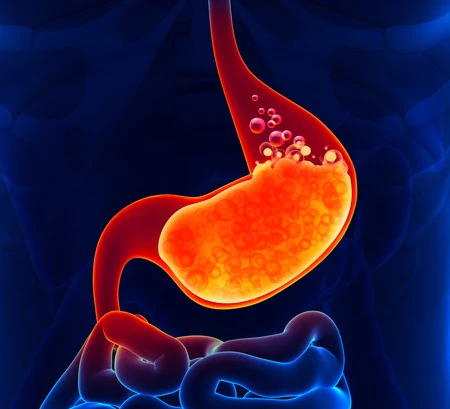Monday Article #29: The cancerous effect of reflux ?
- Admin

- Aug 1, 2022
- 3 min read
Updated: Aug 23, 2022

Investigations suggest a link between bile acid reflux and cancer of the upper throat.
Bile acid refluxing into the throat can initiate a cell death process that could lead to the development of nasopharyngeal carcinoma, a cancer affecting the back of the nose and upper part of the throat, according to a study conducted by researchers at University Malaysia Sarawak (UNIMAS).
Bile is produced by the liver and stored in the gall bladder. It is secreted into the upper small intestine to help digest fats. Bile acids can cause cancer in the digestive tract, and can cause chronic inflammation in upper parts of the respiratory tract when they reflux along with acidic stomach contents into the oesophagus and beyond, a condition known as gastro-oesophageal reflux disease.
Chronic inflammation of the nose and sinuses is associated with the development of nasopharyngeal carcinoma. A large study involving almost 250,000 people in Taiwan showed that individuals with chronic rhinosinusitis had a 3.55- fold higher risk of developing nasopharyngeal carcinoma compared to those without it. However, the underlying mechanisms that cause chronic inflammation to develop into cancer have not been clear.
To better understand this relationship, Sang-Nee Tan and Sai-Peng Sim of UNIMAS’s department of paraclinical sciences investigated what happens at the molecular level when nasopharyngeal cells are exposed to bile acid. They published their results in the journal BMC Cancer.
They found that cells exposed to bile acid initiated a process of cell death called apoptosis. This type of cell death can act as an anticancer defence by removing cells with damaged DNA. Some cells survive by repairing DNA before apoptosis is complete. However, of the DNA-repair process itself is damaged, chromosomes can rearrange within the cell, which can lead to cancer formation.
Specifically, the initiation of apoptosis activated an enzyme called caspase-3. Activated caspase-3 is known to free another enzyme, called caspase-activated deoxyribonuclease (CAD). Apoptosis initiation also led to damage in a gene involved in nasopharyngeal carcinoma, called AF9. The researchers added a caspase-3 inhibitor to the cells and found it prevented this damage from forming. This suggests that CAD plays a major role in damaging AF9.
The researchers theorize that prolonged exposure to bile acid causes not only chronic inflammation of the nose and sinuses, but also increases the risk of chromosomal alterations that can spark cancer formation. However, further research is needed to confirm a link between bile acid reflux and nasopharyngeal cancer.
REFERENCES
Kim, J. J. (2013). Upper gastrointestinal cancer and reflux disease. Journal of gastric cancer, 13(2), 79-85.
Nicholson, A., & Jankowski, J. (2011). Acid reflux and oesophageal cancer. Inflammation and Gastrointestinal Cancers, 65-82.
Offman, J., Muldrew, B., O’Donovan, M., Debiram-Beecham, I., Pesola, F., Kaimi, I., ... & Fitzgerald, R. C. (2018). Barrett’s oESophagus trial 3 (BEST3): study protocol for a randomised controlled trial comparing the Cytosponge-TFF3 test with usual care to facilitate the diagnosis of oesophageal pre-cancer in primary care patients with chronic acid reflux. BMC cancer, 18(1), 1-16.
Tan, S. N., & Sim, S. P. (2018). Bile acids at neutral and acidic pH induce apoptosis and gene cleavages in nasopharyngeal epithelial cells: implications in chromosome rearrangement. BMC cancer, 18(1), 1-18.
Tan, S. N., Sim, S. P., & Khoo, A. S. (2016). Potential role of oxidative stress-induced apoptosis in mediating chromosomal rearrangements in nasopharyngeal carcinoma. Cell & bioscience, 6, 35. https://doi.org/10.1186/s13578-016-0103-9
Article prepared by: Tanessri Muni Peragas

Comments